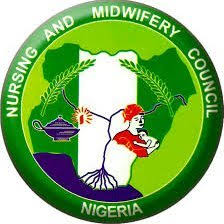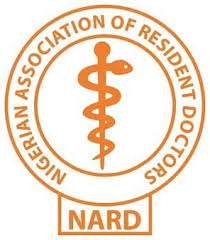ANOTHER LASSA FEVER OUTBREAK: LITMUS TEST FOR THE EMERGENCY PREPAREDNESS OF OUR NATION.
The National Association of Nigeria Nurses and Midwives (NANNM) received with great shock the news of the death of one of our members and a professional colleague at Federal Medical Centre, Idi Aba, Abeokuta, Nurse Adesuyi Bolanle as the victim of fresh case of Lassa fever at the Federal Medical Centre Idi-Aba, Abeokuta, Ogun State. We use this medium to commiserate with her family, professional colleagues and the entire management and staff of the Institution. Nurse Adesuyi lost her live to the scourge ostensibly traceable to the course of caring for patients and thus represents another sacrifice nurses and the nursing profession have been making for the healthcare system and the country at large.
The recent Lassa fever outbreak should be seen as a test for our country’s healthcare system and we are confident that we will surmount it like we did the Ebola outbreak. I have followed closely with keen interest the various intervention programmes of the governments of the federal republic of Nigeria, Ogun state and the strength of our public health care services at all levels of care in combating the menace of health care emergencies as like outbreak of communicable diseases like Lassa fever. It is equally the score sheet for our epidemiological services efficiencies. Let me use this medium to appreciate the state council of NANNM and the unit branch of Federal Medical Centre Idi-Aba for their prompt and professional ways of approaching the situation. During my visit to the center, the unit chairman organized separate meetings with Head of Nursing services and Medical Director of the institution. It was observed that while there are ongoing interventional actions, there is still much left to be desired and seen practically done by the Federal, state and local Government, private collaborating partners in health, and the stakeholders in general in Nigeria.
 Therefore as a professional association and arising from our corporate responsibility to the public, the government and health care providers; especially the nurses who are the most vulnerable as far as the care, cure and rendering of services for the victims of Lassa fever is concerned; it is pertinent to bring to the fore adequate information and awareness to address the problem of Lassa fever as well as providing advice on measures to take so as to minimize casualties and fatalities as a result of this recent outbreak.
Therefore as a professional association and arising from our corporate responsibility to the public, the government and health care providers; especially the nurses who are the most vulnerable as far as the care, cure and rendering of services for the victims of Lassa fever is concerned; it is pertinent to bring to the fore adequate information and awareness to address the problem of Lassa fever as well as providing advice on measures to take so as to minimize casualties and fatalities as a result of this recent outbreak. First, it is important for all Nigerians to realize that this is not a time to panic or fret. Rather, we should seek and act based on relevant information, adequate knowledge to prevent being infected and provide safe, accessible, affordable, timely and effective care. Lassa fever is an acute viral hemorrhagic illness whose causative agent is a deadly virus, a member of Arenaviridae virus family which is transmitted through contact with food or household items contaminated with the urine or faeces of multi-mammate rats (Mastomysnatalensis). It can also be transmitted from one human to another through direct contact with blood, urine, feces, vomitus and other body secretions of infected persons. Cases of sexual transmission of the Lassa virus have also been reported. Health practitioners and professionals should note that transmission from person-to-person can occur in communities and health care settings. Thereby it is capable of constituting zoonotic and nosocomial infections in our hospitals, health centres and clinics.
Lassa fever has an incubation period of 6 – 21 days and a gradual onset. The victims starts manifesting with malaise, general weakness and fever which progresses to headache, muscle cramps, sore throat, chest pain, nausea, vomiting, cough, diarrhea and abdominal pain in few days. Other severe signs and symptoms occur as the illness progresses and often result to death in fatal cases.
It is imperative at this point to advise Nigerians and foreigners visiting or residing in Nigeria to protect ourselves, our foods and houses from rats and maintain proper hygiene to prevent contact with the virus. Early identification of symptoms and early supportive care will greatly improve prognosis hence the public should ensure that infected persons are presented on time to a health facility. The greatest responsibilities lie on the nurses. Certainly we're up to the task and we will not waiver nor relent.
We want to use this medium to call on our entire professional colleagues to be more careful and take universal safety precautions while attending to clients. We strongly advise nurses and other health professionals to remember and employ the use of universal precaution techniques while attending to all clients. The rule of regular and proper hand washing techniques should be adhered to strictly. As a professional association, we advocate for availability of materials, and appropriate technologies as part of minimum requirements for work. While we are very much willing to care for the sick, we should not allow ourselves to be used as unnecessary sacrificial lambs for the failures of the Nigeria health system, inefficient health care services managers of our health care institutions neither should we be turned to vectors to transfer the virus from one person to another.
There is a great need to firm up the process of contact tracing and diseases surveillance, as the current case must have involved many nurses who have close contact with the deceased. The public should also be urged to stop undue stigmatization on families, friends and close associate of the victim. The social stigmatization is a serious and untold hardship on the family who has witnessed undue attention since the occurrence.
We appeal to Nigerian nurses to remain calm and remain dedicated to the discharge of their duties but also be very vigilant. As nurses, we will remain committed to duties and continue to put in our best as we play our part in the efforts to fight this outbreak as we have always done in public health emergencies especially the Ebola outbreak which was a trying period in our nation’s health system. It is noteworthy that nurses have always stood by Nigeria and Nigerians in public health emergencies in the spirit of Nightingale the mother of modern nursing even when some other professionals felt the best they could do at such trying period is to abandon Nigerians at their point of need.
There is no doubt that there must be collective efforts and responsibility of all stakeholders in the health sector to fight this dreaded virus through health efficient, timely, affordable, accessible and rancor free health care services, research, shared scientific efforts and the political will as well as dedicated team work, collective responsibilities and all-inclusiveness in our policy formulation, implementation, evaluation and reporting.
The federal government should also firm up the regulation on quarantine and adequately involve the officers and men of law enforcement agents including the immigration services to be thorough in their services and Nigeria Port health services should be strengthened with adequately trained personnel especially the Public Health Nurses to do part of what they are trained to do.
We use this opportunity to call on the federal government of Nigeria to borrow leaf from neighbouring countries to start adequate compensation for heroes and heroines of our health sector deficiencies. The sacrifices of persons like Nurse Adesuyi Bolanle should not be in vain. A good way to start is to continue the payment of her salary to her immediate family till her would be retirement age and put measures in place to ensure that her retirement benefits are given to the family. www.nursingworldnigeria.com We know that no amount paid can fill the vacuum created by her painful exit, this gesture will however grant succour to the family and serve as motivation for colleagues who daily put themselves in the line of duty for the safety and sanctity of the nation’s health system. We also use this medium to call on the federal government to as a matter of urgency commence a comprehensive life insurance policy for frontline health professionals to cater for their loved ones should they fall victim while protecting and securing the health of Nigerians.
We also urge the federal government to intensify efforts at improving our public health system and ensure that all frontline professionals are adequately prepared to face the threats to our health care system. The government at all levels should do their part to provide adequate equipment, infrastructures, technologies, protective wears and policies to take care of health professionals who fall victim in the course of performing their duties.
The government should be able to provide adequate infectious disease prevention and control measures and strategies and infrastructures with all forms of isolation and barrier nursing techniques. There is also need to take urgent steps to adequately equip our health care facilities and strengthen the health care system especially at the preventive level as this will ensure that we are always prepared for such health emergencies. It is high time we moved from being reactionary to public health challenges. The Nigerian health care system seems to have relaxed following the successful campaign against the Ebola outbreak and the immediate pass outbreak of Lassa fever. The government and the Nigerian populace should be rest assured that nurses are solidly committed to playing their own roles in promoting the health of the citizenry and preventing illnesses. The federal, state, and local governments should not relent in exercising control over publicly and privately owned health facilities and continue monitoring activities on them to ensure efficient, quality and safe health care system.
The government should review the effectiveness of National Health Insurance Scheme to change from its present state of providing ill-gotten money and access for some privilege few and make the giant stride to be free from gazzetted fraud and corruption to make it acceptable and alluring to non-formal sectors for adoption and implementation, as this scheme is the only way by which the pain of health care financing can be alleviated. While the slight increase in health care budgeting is commendable, it is pertinent to draw the attention of the Nigeria government and the hollow chambers to note that Nigeria is a signatory to the health care financing April, 2001 Abuja declaration where the Heads of States and Government in Africa agree to upgrading the budgetary allocation of 15% to health services. The Legislatives chamber should use this opportunity to adjust the allocation to health towards attaining the 15% allocation as the current allocation of less than 5% is drastically short of international standard.
Nigerian nurses have demonstrated their savvy and ability to ensure that our health system withstand this test and come out victorious like we have done in previous periods of challenges. This current challenge will not be an exception and I am confident that we shall overcome and like our parlance in the movement has reposed the confidence in us; the struggle continues and victory is certain (ALUTA CONTINUA, VICTORIA ASCERTA).
ABDRAFIU ALANI ADENIJI
National President
National Association of Nigeria Nurses and Midwives (NANNM)
ABUJA: Training Schedule for Basic Life Support BLS, Pediatric Advanced Life Support (PALS), Advanced Cardiovascular Life Support ACLS, First Aid, CPR, AED
PORTHARCOURT: Training Schedule for Basic Life Support BLS, Pediatric Advanced Life Support (PALS), Advanced Cardiovascular Life Support ACLS, First Aid, CPR, AED
LAGOS: Training Schedule for Basic Life Support BLS, Pediatric Advanced Life Support (PALS), Advanced Cardiovascular Life Support ACLS, First Aid, CPR, AED




